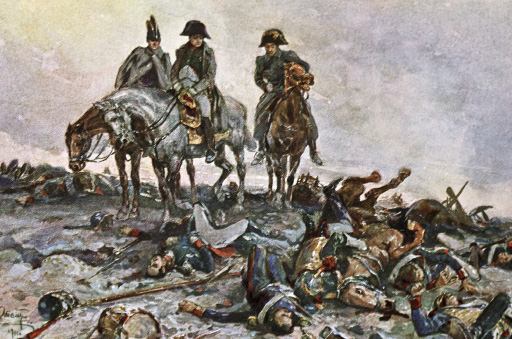What
Started the War? Nobody Knows
Here’s how Volume Three of War
and Peace begins: “Since the end of the year 1811 an ever increasing
armament and concentration of Western European forces had begun, and in the
year 1812 those forces—millions of men, including those who provided transportation
and food for the army—moved from west to east, to the borders or Russia,
towards which borders, since the year 1811, the forces of Russia had been
advancing as well. On the twelfth of June the forces of Western Europe crossed
the Russian border and war began—that is, an event contrary to human reason, and
to the whole of human nature, came about.”
Tolstoy goes on to outline the
possible reasons why the war started, finally concluding that there were so
many reasons, and sub-reasons, and intertwined sub-sub-reasons that it is
impossible to conclude exactly how and why the war began. At one point he uses
a metaphor to make his point:
“When an apple has ripened and
falls, why does it fall? By reason of its gravitational attraction to the
ground, or because the stem has withered, or because the sun has dried it up
and it has grown heavier, or because the wind shakes it, or because the boy
standing below wants to eat it?” He concludes that the apple falls for all
these reasons, and still more.
Of course, in the first paragraph
cited above Tolstoy makes one statement that is patently false. He says that
war is something not compatible with the whole of human nature. Wrong. Men love
war, and wars have been perpetual throughout human history, despite the efforts
of rational human beings to abolish the institution of war. Men love war, and
so does human nature.


No comments:
Post a Comment